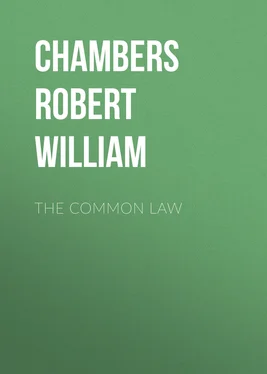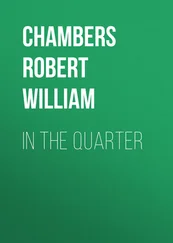Robert Chambers - The Common Law
Здесь есть возможность читать онлайн «Robert Chambers - The Common Law» — ознакомительный отрывок электронной книги совершенно бесплатно, а после прочтения отрывка купить полную версию. В некоторых случаях можно слушать аудио, скачать через торрент в формате fb2 и присутствует краткое содержание. Жанр: foreign_prose, foreign_antique, на английском языке. Описание произведения, (предисловие) а так же отзывы посетителей доступны на портале библиотеки ЛибКат.
- Название:The Common Law
- Автор:
- Жанр:
- Год:неизвестен
- ISBN:нет данных
- Рейтинг книги:4 / 5. Голосов: 1
-
Избранное:Добавить в избранное
- Отзывы:
-
Ваша оценка:
- 80
- 1
- 2
- 3
- 4
- 5
The Common Law: краткое содержание, описание и аннотация
Предлагаем к чтению аннотацию, описание, краткое содержание или предисловие (зависит от того, что написал сам автор книги «The Common Law»). Если вы не нашли необходимую информацию о книге — напишите в комментариях, мы постараемся отыскать её.
The Common Law — читать онлайн ознакомительный отрывок
Ниже представлен текст книги, разбитый по страницам. Система сохранения места последней прочитанной страницы, позволяет с удобством читать онлайн бесплатно книгу «The Common Law», без необходимости каждый раз заново искать на чём Вы остановились. Поставьте закладку, и сможете в любой момент перейти на страницу, на которой закончили чтение.
Интервал:
Закладка:
He rose from the table, laid aside the remains of his cigar, nodded good-humouredly to the others, and went out with that quick, graceful, elastic step which was noticed by everybody and envied by many.
"Hell," observed John Burleson, hitching his broad shoulders forward and swallowing a goblet of claret at a single gulp, "it's all right for Kelly Neville to shed sweetness and light over a rotten exhibition where half the people are crowded around his own picture."
"What a success he's having," mused Ogilvy, looking sideways out of the window at a pretty girl across the street.
Annan nodded: "He works hard enough for it."
"He works all the time," grumbled Burleson, "but, does he work hard ?"
"A cat scrambling in a molasses barrel works hard," observed Ogilvy—"if you see any merit in that, John."
Burleson reared his huge frame and his symmetrical features became more bovine than ever:
"What the devil has a cat in a molasses barrel to do with the subject?" he demanded.
Annan laughed: "Poor old honest, literal John," he said, lazily. "Listen; from my back window in the country, yesterday, I observed one of my hens scratching her ear with her foot. How would you like to be able to accomplish that, John?"
"I wouldn't like it at all!" roared Burleson in serious disapproval.
"That's because you're a sculptor and a Unitarian," said Annan, gravely.
"My God!" shouted Burleson, "what's that got to do with a hen scratching herself!"
Ogilvy was too weak with laughter to continue the favourite pastime of "touching up John"; and Burleson who, under provocation, never exhibited any emotion except impatient wonder at the foolishness of others, emptied his claret bottle with unruffled confidence in his own common-sense and the futility of his friends.
"Kelly, they say, is making a stunning lot of stuff for that Byzantine Theatre," he said in his honest, resonant voice. "I wish to Heaven I could paint like him."
Annan passed his delicate hand over his pale, handsome face: "Kelly Neville is, without exception, the most gifted man I ever knew."
"No, the most skilful," suggested Ogilvy. "I have known more gifted men who never became skilful."
"What hair is that you're splitting, Sam?" demanded Burleson. "Don't you like Kelly's work?"
"Sure I do."
"What's the matter with it, then?"
There was a silence. One or two men at neighbouring tables turned partly around to listen. There seemed to be something in the very simple and honest question of John Burleson that arrested the attention of every man at the Syrinx Club who had heard it. Because, for the first time, the question which every man there had silently, involuntarily asked himself had been uttered aloud at last by John Burleson—voiced in utter good faith and with all confidence that the answer could be only that there was nothing whatever the matter with Louis Neville's work. And his answer had been a universal silence.
Clive Gail, lately admitted to the Academy said: "I have never in my life seen or believed possible such facility as is Louis Neville's."
"Sure thing," grunted Burleson.
"His personal manner of doing his work—which the critics and public term 'tek—nee—ee—eek,'" laughed Annan, "is simply gloriously bewildering. There is a sweeping splendour to it—and what colour!"
There ensued murmured and emphatic approbation; and another silence.
Ogilvy's dark, pleasant face was troubled when he broke the quiet, and everybody turned toward him:
"Then," he said, slowly, "what is the matter with Neville?"
Somebody said: "He does convince you; it isn't that, is it?"
A voice replied: "Does he convince himself?"
"There is—there always has been something lacking in all that big, glorious, splendid work. It only needs that one thing—whatever it is," said Ogilvy, quietly. "Kelly is too sure, too powerfully perfect, too omniscient—"
"And we mortals can't stand that," commented Annan, laughing. "'Raus mit Neville!' He paints joy and sorrow as though he'd never known either—"
And his voice checked itself of its own instinct in the startled silence.
"That man, Neville, has never known the pain of work," said Gail, deliberately. "When he has passed through it and it has made his hand less steady, less omnipotent—"
"That's right. We can't love a man who has never endured what we have," said another. "No genius can hide his own immunity. That man paints with an unscarred soul. A little hell for his—and no living painter could stand beside him."
"Piffle," observed John Burleson.
Ogilvy said: "It is true, I think, that out of human suffering a quality is distilled which affects everything one does. Those who have known sorrow can best depict it—not perhaps most plausibly, but most convincingly—and with fewer accessories, more reticence, and—better taste."
"Why do you want to paint tragedies?" demanded Burleson.
"One need not paint them, John, but one needs to understand them to paint anything else—needs to have lived them, perhaps, to become a master of pictured happiness, physical or spiritual."
"That's piffle, too!" said Burleson in his rumbling bass—"like that damn hen you lugged in—"
A shout of laughter relieved everybody.
"Do you want a fellow to go and poke his head into trouble and get himself mixed up in a tragedy so that he can paint better?" insisted Burleson, scornfully.
"There's usually no necessity to hunt trouble," said Annan.
"But you say that Kelly never had any and that he'd paint better if he had."
"Trouble might be the making of Kelly Neville," mused Ogilvy, "and it might not. It depends, John, not on the amount and quality of the hell, but on the man who's frying on the gridiron."
Annan said: "Personally I don't see how Kelly could paint happiness or sorrow or wonder or fear into any of his creations any more convincingly than he does. And yet—and yet—sometimes we love men for their shortcomings—for the sincerity of their blunders—for the fallible humanity in them. That after all is where love starts. The rest—what Kelly shows us—evokes wonder, delight, awe, enthusiasm…. If he could only make us love him—"
" I love him!" said Burleson.
"We all are inclined to—if we could get near enough to him," said Annan with a faint smile.
"Him—or his work?"
"Both, John. There's a vast amount of nonsense talked about the necessity of separation between a man and his work—that the public has no business with the creator, only with his creations. It is partly true. Still, no man ever created anything in which he did not include a sample of himself—if not what he himself is, at least what he would like to be and what he likes and dislikes in others. No creator who shows his work can hope to remain entirely anonymous. And—I am not yet certain that the public has no right to make its comments on the man who did the work as well as on the work which it is asked to judge."
"The man is nothing; the work everything," quoted Burleson, heavily.
"So I've heard," observed Annan, blandly. "It's rather a precious thought, isn't it, John?"
"Do you consider that statement to be pure piffle?"
"Partly, dear friend. But I'm one of those nobodies who cherish a degenerate belief that man comes first, and then his works, and that the main idea is to get through life as happily as possible with the minimum of inconvenience to others. Human happiness is what I venture to consider more important than the gim-cracks created by those same humans. Man first, then man's work, that's the order of mundane importance to me. And if you've got to criticise the work, for God's sake do it with your hand on the man's shoulder."
"Our little socialist," said Ogilvy, patting Annan's blonde head. "He wants to love everybody and everybody to love him, especially when they're ornamental and feminine. Yes? No?" he asked, fondly coddling Annan, who submitted with a bored air and tried to kick his shins.
Читать дальшеИнтервал:
Закладка:
Похожие книги на «The Common Law»
Представляем Вашему вниманию похожие книги на «The Common Law» списком для выбора. Мы отобрали схожую по названию и смыслу литературу в надежде предоставить читателям больше вариантов отыскать новые, интересные, ещё непрочитанные произведения.
Обсуждение, отзывы о книге «The Common Law» и просто собственные мнения читателей. Оставьте ваши комментарии, напишите, что Вы думаете о произведении, его смысле или главных героях. Укажите что конкретно понравилось, а что нет, и почему Вы так считаете.












